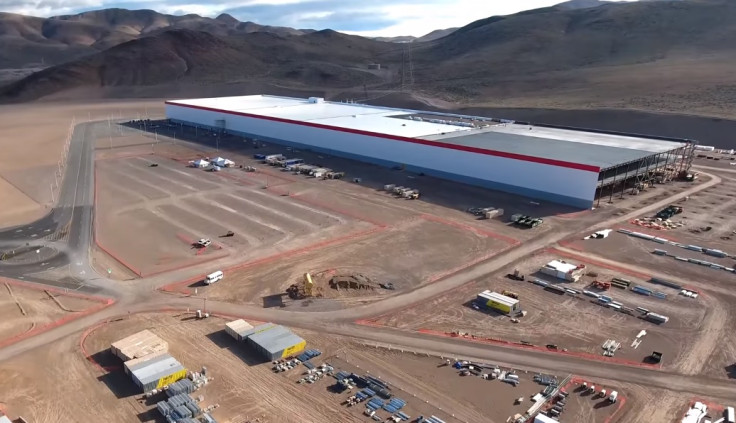Tesla freezes Gigafactory expansion plan, Panasonic suspends Shanghai investment
Tesla and Panasonic have put on the back burner a project that would have boosted the battery production capacity at Tesla's Gigafactory 1 in Nevada.
Partners Tesla Inc. and Japan's Panasonic Corporation have put on hold their ambitious and costly plan to boost the production of electric batteries at Tesla's Gigafactory 1 in Reno, Nevada.
Tesla, however, is disputing this report carried by Japanese media that seems to have originated at Panasonic. It's expected to issue its own statement about the matter.
Gigafactory 1 is the world's largest electric vehicle (EV) battery plant. Both Tesla and Panasonic have invested more than $4.5 billion in this factory to date.
The delayed battery production expansion would have allowed Tesla to manufacture one million EVs per year, which is more than twice the current 400,000 EV production capacity at Gigafactory 1.
Tesla and Panasonic had planned to boost electric battery production capacity by 50 percent in 2020, but Tesla's EV sales, while impressive, have fallen below expectations. With predictions of an equally soft market next year, the partners decided a major battery investment at this stage is too much of a financial risk.
Tesla's ultimate goal is to produce 1 million EVs a year in its two U.S. factories. This goal is now on hold.
Panasonic will also delay its planned investment in Tesla's integrated automotive battery and EV plant in Shanghai, or Gigafactory 3. Instead, it will provide technical support and a small number of batteries from the Gigafactory.
Analysts noted the chicken and egg dilemma facing Tesla and other EV makers. Lowering production costs (and thereby the price of EVs) demands major investments in innovation. And without innovation, cheaper EVs are impossible. Right now, high production costs means Tesla has to bear with thin profit margins that aren't to its liking.

Tesla sold 245,240 EVs in 2018 and plans to sell from 360,000 to 400,000 EVs in 2019. Deliveries, however, have been delayed by production problems.
Tesla's sales plummeted 30 percent from January to March compared to Q4 2018. Production is being delayed by weaker than expected sales in China, smaller tax breaks for EVs sold in the U.S. and logistics bottlenecks.
Gigafactory 1 has been making batteries for the Model 3, Tesla's luxury four-door sedan, since January 2017. Panasonic manufactures the cells while Tesla combines them into battery packs before assembling the cars at the Tesla Factory in Fremont, California.
Panasonic is one of the world's biggest producers of EV batteries. Six months ago, Panasonic President Kazuhiro Tsuga said the company will consider "further investment in North America, keeping in step with Tesla."
This article originally appeared in IBTimes US.
This article is copyrighted by International Business Times, the business news leader





